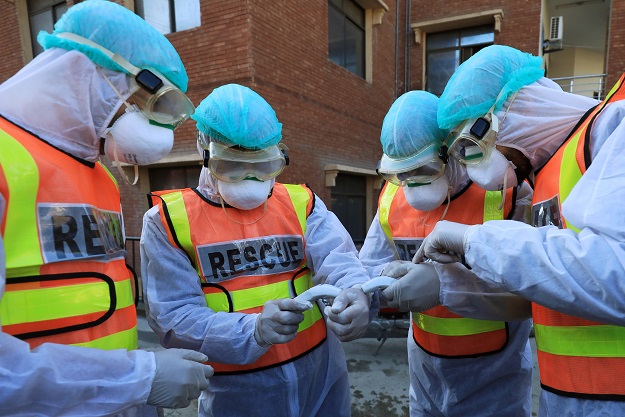
By: RadhakrishnaNS
GOVERNMENT policymakers around the globe will need to implement “substantial” targeted fiscal, monetary and financial market measures to combat the economic impact from the rapidly spreading coronavirus, International Monetary Fund (IMF) chief economist Gita Gopinath said on Monday (9).
In a blog posting on the IMF’s website, Gopinath said her top recommendations involved putting cash directly into the hands of households and businesses. Broad interest rate cuts may instill confidence but would be effective in stimulating activity only once business conditions normalize, she added.
The virus has shuttered factories, disrupted travel, delayed conferences and sporting events and infected more than 110,000 people worldwide while killing more than 3,800, mainly in China, and is accelerating in other countries.
Gopinath said the impact is seen in production cuts hitting companies across the globe that depend on parts from China, as well as consumption, since people are reluctant to go out and spend money.
The result then ripples into financial markets as borrowing costs rise when “banks suspect consumers and firms may be unable to repay their loans on a timely basis.”
“Households and businesses hit by supply disruptions and a drop in demand could be targeted to receive cash transfers, wage subsidies, and tax relief, helping people to meet their needs and businesses to stay afloat,” Gopinath wrote.
She cited as an example Italy’s decision to extend tax deadlines for companies in affected areas and a broadened wage supplementation fund to support workers laid off amid quarantines and travel restrictions.
South Korea also has introduced wage subsidies for small merchants and increased allowances for homecare and job seekers, while China has temporarily waived social security contributions for businesses, she said.
“For those laid off, unemployment insurance could be temporarily enhanced, by extending its duration, increasing benefits, or relaxing eligibility,” Gopinath wrote.
“Where paid sick and family leave is not among standard benefits, governments should consider funding it to allow unwell workers or their caregivers to stay home without fear of losing their jobs during the epidemic.”
Gopinath also said central banks should be ready to provide ample liquidity to banks and nonbank finance companies, “particularly to those lending to small- and medium-sized enterprises, which may be less prepared to withstand a sharp disruption.”
Governments also could offer temporary and targeted credit guarantees for the near-term liquidity needs of these firms, and financial market regulators and supervisors could also encourage, on a temporary and time-bound basis, extensions of loan maturities, she said.
Further down on her list was broader monetary stimulus, such as policy rate cuts, and asset purchases. These can lift confidence and support financial markets if there is a marked risk of a sizable tightening in financial conditions.
Wider fiscal stimulus also could help, over time. “Broad-based fiscal stimulus consistent with available fiscal space can help lift aggregate demand but would most likely be more effective when business operations begin to normalize,” she said.
The US Federal Reserve last week announced an emergency interest rate cut, and significantly increased its daily cash injections into money markets to $150 billion to ensure ample liquidity amid the virus uncertainty.
That was just what Gopinath called for, saying such moves “can lift confidence and support financial markets.” And she noted that “actions by large central banks (are) also generating favorable spillovers for vulnerable countries.”
The US on Monday downplayed the threat posed by the widening coronavirus outbreak, while US stock markets plummeted after the open of trading on fears of a looming global recession.
The number of confirmed US cases of coronavirus was at 566 on Monday, including 22 deaths, according to state public health authorities and a running national tally kept by the Johns Hopkins University center tracking the outbreak.
About three-fourths of the 50 US states have reported infections.
“Right now we’re telling people to act as if this is a severe flu season,” White House spokeswoman Stephanie Grisham said in an interview with Fox News from West Palm Beach, where president Donald Trump spent the weekend at his Florida resort.
